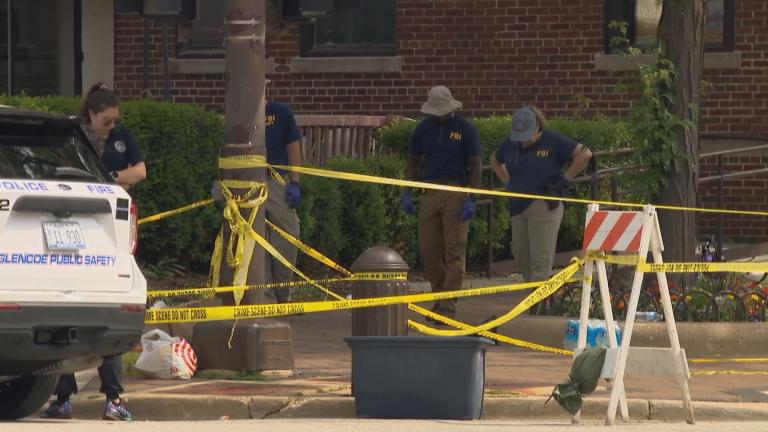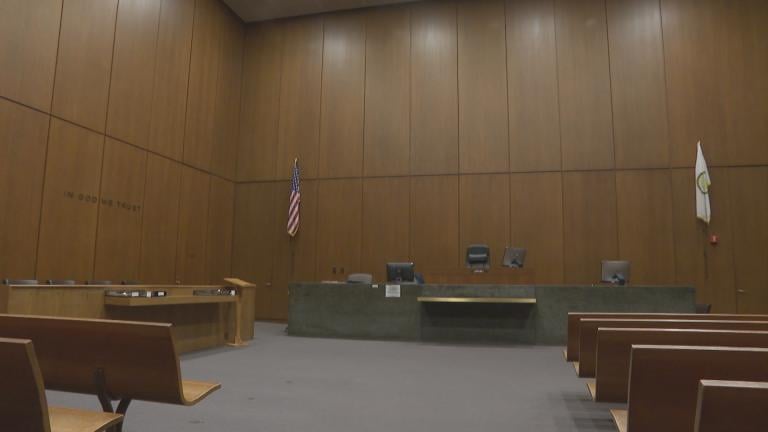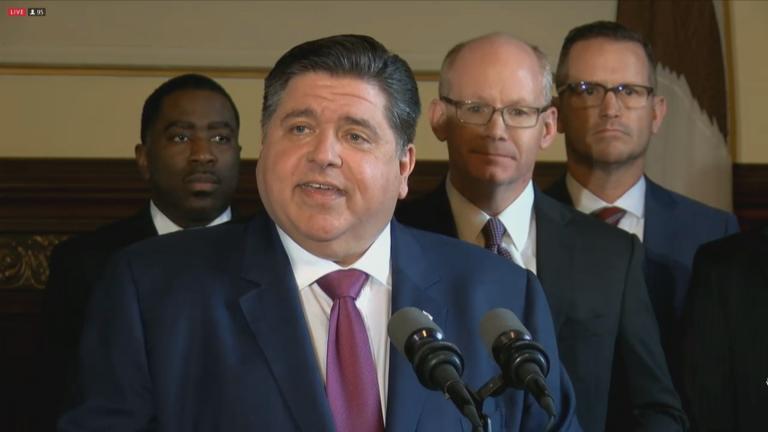The Illinois legislature was busy in 2022, enacting hundreds of new laws, many of which will take effect on Sunday.
The most controversial change has received widespread attention: The portion of the SAFE-T Act that will eliminate cash bail. That provision will go into effect for counties not covered by a court ruling issued Wednesday night that finds the law unconstitutional and will keep in place the current bail system in some 65 counties that are part of a consolidated lawsuit.
Dozens of other measures that have received less public scrutiny will likewise impact Illinois residents’ lives.
Court Access for Domestic Violence Survivors
Advocated fighting domestic violence applaud a law (SB3667/ Public Act 102-0853) that gives domestic violence survivors more flexibility in seeking court protections, by allowing for the online filing of petitions for protective orders.
In the nine counties with populations of 250,000 residents or more (Cook, DuPage, Lake, Will, Kane, McHenry, Winnebago and Madison counties) courts must also offer the option of remote proceedings.
Amanda Pyron is director of The Network, a Cook County-based coalition of 37 organizations fighting gender-based violence.
Cook County already has a remote option and 24-7 access to domestic violence courts, something which she said was hugely important for a gunshot victim who was able to get an order of protection from her hospital bed.
“Here she is, she survived gun-involved domestic violence. She’s nervous about being released from the hospital, going back to her home of residence,” Pyron said. “Having a civil order of protection, knowing that the offender had been told and ordered to stay away from her, was an extra layer of security that she could have before she left. And she could only get that remotely. She could not leave the hospital and go directly to the courthouse and then wait for that order to be served.”
Pyron said the intent had been to require remote access in every county.
“What we want to make sure in Illinois is that we’re not a state of the haves and the have-nots. And often that happens where you have a well-resourced county, like Cook (or even a smaller well-resourced county, like Winnebago) and they have really innovative services for survivors of domestic violence. And then you look at other countries across the state and perhaps they only offer orders of protection one day a week and you just think for a survivor who lives in a rural part of the state, that’s just not fair,” she said.
But she said some counties fought it, citing a lack of broadband technology, financial resources and staffing capability.
“I think that this law is really effective,” she said. “I’d love to see funding added to this program to increase services across the state.”
Health Care and Insurance Coverage
In 2023, employees can take a maximum of 10 working days of leave due to an unsuccessful IVF procedure, failed adoption, stillbirth or miscarriage (Senate Bill 3120 / Public Act 102-1050).
“I had a friend of mine who lost their child at eight months. It’s devastating. Devastating. Eight months. The heartbeat just stopped and you don’t know why,” said state Rep. Stephanie Kifowit, D-Oswego. “I think that that’s something that has to process. And they need time to process. You can’t just go back to work and pretend that the world is the same as it was before. It’s just not.”
Kifowit is sponsor of another measure (HB4271 / Public Act 102-0731) that was signed into law in 2022, but won’t take effect until January 2024. It requires that insurance companies pay for medically necessary breast reduction surgery.
“Women are suffering,” Kifowit said. “They can’t pick up groceries, they can’t pick up their children, they have chronic back issues. And insurance companies were deeming it cosmetic. The legislation talks about medically-necessary reduction services. Which is just women’s health issues. Women’s health. This is about women’s health. It’s not cosmetic.”
Others 2022 laws taking effect in January 2024 will require new insurance policies to cover genetic testing for the genes that detect an increased risk of breast and ovarian cancer (House Bill 5334/ Public Act 102-0979) and will require coverage, without a copay or deductible cost, of annual prostate cancer screenings (House Bill 5318).
Minimum Wage Increase
The head of the state association for small businesses, NFIB Illinois’ Chris Davis, said policies like insurance mandates and additional leave are hidden costs for businesses, even as they’re dealing with increased costs associated with inflation.
Businesses in 2023 may need to pay their workers more.
The statewide minimum wage will notch up in 2023 to $13 an hour. State law provides that it will go up by another dollar the next two years, until it reaches $15 in 2025.
But Davis said he knows of few employers that aren’t already paying at least the minimum wage.
“The market has shown its influence here,” Davis said. “Employers have been bracing for it (the minimum wage increase), they’re aware of it, they’ve been expecting it. However, employers can’ t find employees right now. Sort of regardless of what they’re paying, they’re finding it very hard to hire still; 48% of small business owners are reporting difficulty in hiring.”
Education Laws
Another new law could help job-seekers who didn't go the traditional route by walking across a stage for high school graduation.
Those who pass a high-school equivalency course and exam won’t get a certificate; from now on it'll be recognized as a diploma (per SB3792/Public Act 102-1100).
“In the past, that term ‘equivalency certificate’ carried a stigma and the incorrect assumption that the graduate had received a lower level of degree. And this change accurately reflects that the high school equivalency certificate is a diploma. Insuring no graduate of Illinois high schools will face challenges based on inaccurate assessments of their educational level,” said Gwen Daniels, deputy director of Illinois Legal Aid Online.
Going forward, Illinois school board members who make decisions that have huge impacts on students of all ages will need to get trauma-informed training (SB2109 / Public Act 102-0638).
“It’s a reflection of the world, I think, that we live in. School children are facing things that in my generation we didn’t have to worry about, like mass shootings in schools and a pandemic that has certainly had a very strong impact on school children,” Daniels said.
School children can take at least one day off from the classroom, as long as they’re getting a real-world, civic lesson under House Bill 5488 / Public Act 102-0981.
Middle and high school students can get one excused absence for a “civic event, ” defined as “an event sponsored by a non-profit organization or governmental entity that is open to the public” such as “an artistic or cultural performance or educational gathering.”
Other New Laws
Some laws will hit people’s pocketbooks.
Owners of carjacked vehicles won't be liable for any speeding tickets or citations after the car is stolen (HB3772 / Public Act 102-0905).
Senior citizens and disabled individuals will pay $10 instead of $24 for a vehicle registration sticker (HB5304 / Public Act 102-0807).
And other measures are more light-hearted.
Aug. 1 will henceforth be Sweet Corn Appreciation Day (HB4766); Illinois officially gets a state snake, the Eastern milksnake (HB4821), and a state rock, the dolostone (HB4261).








